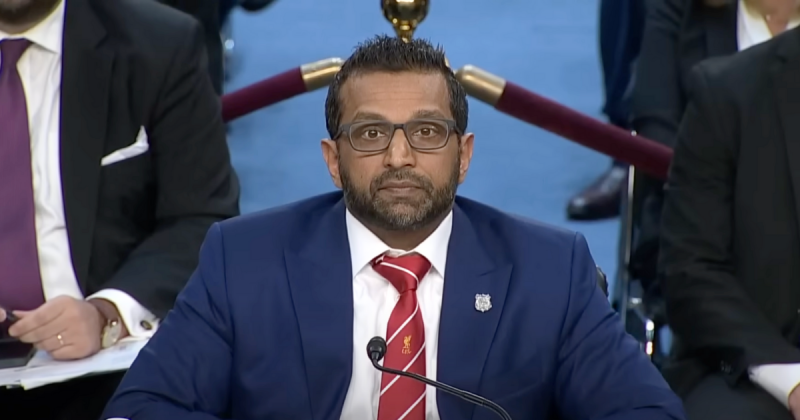In a dramatic move, the FBI has dismissed roughly 20 agents who were photographed kneeling during racial justice protests in Washington, D.C., following the 2020 death of George Floyd.
The agents, who were initially reassigned earlier this year, were formally terminated this month, according to multiple sources familiar with the matter.
The agency has not released an official statement confirming the number of terminations, but insiders indicate that the decision reflects a broader initiative under FBI Director Kash Patel to reshape the bureau’s operations.
The kneeling gesture, widely associated with solidarity against police brutality and systemic racism, sparked immediate controversy when images of the agents surfaced.
Critics argued that federal law enforcement officers participating in political demonstrations could compromise the perceived impartiality of the agency, while others defended the agents’ right to express personal convictions.
Patel, who was appointed as FBI Director earlier this year, has overseen sweeping personnel changes at the bureau, often targeting employees perceived as politically misaligned or overly vocal in public forums.
The recent firings are part of a larger effort by Patel to address concerns about political bias within the FBI, as well as to restore what he describes as “operational integrity” and neutrality in law enforcement.
Sources suggest that Patel believes the kneeling gesture undermined the agency’s reputation for impartiality, particularly amid heightened political tensions in the country, per the Associated Press.
The timing of the firings has intensified public debate. The dismissals come just days after Patel faced significant criticism for his handling of the investigation into the assassination of conservative activist Charlie Kirk.
In that case, Patel’s management of sensitive documents and evidence raised questions among both supporters and opponents regarding his priorities and approach to politically charged investigations.
Some commentators argue that the termination of the Floyd protest agents may signal a continued effort by Patel to align the FBI more closely with the current administration’s policies and viewpoints, while consolidating his authority over personnel decisions.
The terminations have sparked discussions on the balance between individual rights and institutional expectations within federal agencies.
Supporters of Patel’s decision claim that maintaining the FBI’s reputation for neutrality is essential, especially in cases involving politically sensitive events.
Critics, however, argue that the move suppresses personal expression and may create a chilling effect for agents who wish to engage in public discourse on matters of social justice or policy.
As the controversy unfolds, the broader implications for the FBI remain unclear. Observers note that the agency will likely continue to face scrutiny over its handling of political expression and internal personnel decisions.
The firings, coupled with Patel’s recent controversies, underscore the growing tensions between maintaining institutional authority and respecting the personal freedoms of law enforcement personnel.

